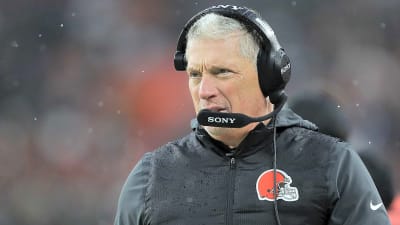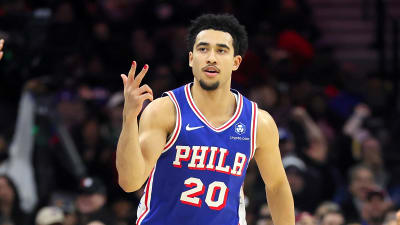
Research suggests that 10 to 12 percent of the world’s population is left-handed, but in the boxing ring, that small percentage has created big problems for their right-handed opponents. Southpaws—fighters who lead with their right hand and right foot forward—bring a unique rhythm to the sport, creating awkward angles, unexpected openings, and a puzzle that many orthodox boxers struggle to solve.
Historically, some fighters went out of their way to avoid facing southpaws, while many naturally left-handed boxers were even forced to switch stances to fit in. But those who embraced their southpaw identity have delivered some of the most jaw-dropping knockouts in boxing history.
From lightning-fast counters to devastating power shots, we’re breaking down our picks for the top 10 southpaw knockouts.
Southpaw Boxing: Iconic Southpaw Knockouts
Southpaw Boxing: Paul Williams vs Sergio MartÍnez
Sergio Martínez and Paul Williams first met in the ring in December 2009, delivering an all-out war. Both fighters hit the canvas in the opening round and traded punches for the rest of the fight. Williams won a controversial majority decision, leaving fans demanding a rematch, which came nearly a year later on November 20, 2010, at Boardwalk Hall in Atlantic City. Expectations were high for another thrilling battle, but Martínez had other plans.
Early in the second round, Martínez landed a perfectly timed overhand left that sent Williams crashing to the canvas, unconscious upon impact. The referee didn’t even begin a count—it was over the moment the punch landed. The stunning knockout was named ESPN’s 2010 Knockout of the Year and remains one of the most unforgettable finishes in boxing history.
Vassiliy Jirov vs Michael Moorer
In a thrilling 2004 heavyweight clash, former champion Michael Moorer showed that power is the last thing to fade in a fighter. Trailing on the scorecards against Vassiliy Jirov, Moorer erased the deficit with a single, devastating punch in the ninth round.
Jirov, an Olympic gold medalist and former cruiserweight champion, controlled most of the fight with pressure and volume punching. He looked to be cruising toward a clear decision victory—until Moorer turned the tide in an instant. A perfectly timed shot dropped Jirov to the canvas, and though he made it to his feet, the referee waved off the fight.
Jirov protested the stoppage, insisting he could continue, but the result stood. For Moorer, it was a dramatic comeback win, proving that even in the twilight of his career, his power was still a game-changer.
Tiger Flowers vs. Harry Greb
Tiger Flowers made history on February 26, 1926, by defeating Harry Greb to become the middleweight champion, marking the first time an African American won the title. Flowers, a converted southpaw, outboxed Greb over 15 rounds with his precise defence and composure, despite Greb’s relentless attacks. Flowers remains the only fighter to defeat Greb without being beaten in return. Despite his achievement, Flowers’ legacy is often overlooked, but his victory over Greb cemented his place as one of boxing’s forgotten greats.
Marvin Hagler vs Alan Minter
Marvin Hagler’s rise to middleweight champion was sealed dramatically on September 27, 1980, when he faced Alan Minter at Wembley Arena in London. After years of frustration and waiting for his shot, Hagler came out swinging, determined to make his moment count.
From the first round, Hagler dominated, unloading sharp, heavy punches that left Minter reeling. The Brockton southpaw’s relentless assault proved too much, and by the third round, Minter was bleeding badly from cuts. The referee stepped in to stop the fight, handing Hagler the world title in a one-sided display of power and skill.
Zab Judah vs Cory Spinks
In their highly anticipated 2005 rematch, Zab Judah was determined to avenge his loss to Cory Spinks from the previous year. After a tough, unanimous decision defeat in their first bout, Judah came in with more aggression. The fight started with both fighters displaying strong defence, but Spinks controlled the middle rounds with sharp counters.
However, Judah’s pressure paid off in the ninth round. A powerful left hand dropped Spinks, and though he got up, he was quickly overwhelmed. Judah landed a barrage of punches, forcing the referee to stop the fight at 2:49 of the ninth round, giving Judah the TKO victory.
Naseem Hamed vs Kevin Kelley
The December 1997 fight between Naseem Hamed and Kevin Kelley saw Hamed’s WBO featherweight title on the line, with the bout delivering six knockdowns—three from each fighter—culminating in a dramatic finish.
Hamed entered the ring with his usual cocky style, taunting Kelley, but Kelley wasn’t intimidated. The fight was fast-paced, with both southpaws throwing powerful right hands. Hamed showed his usual elusive movement while Kelley was quick and aggressive.
By the fourth round, the fight was at a boiling point. Both fighters were taking risks, throwing wild punches. Kelley knocked Hamed down again with a right hand, but Hamed answered back with a quick left cross and another left hook that knocked Kelley down for the final time. Kelley couldn’t recover, and the referee stopped the fight, giving Hamed the win.
Gary Russell Jr vs Vasiliy Lomachenko
In just his third pro fight, Vasiliy Lomachenko fought Gary Russell Jr. in 2014 for the vacant WBO featherweight title. Despite being new to the professional scene, Lomachenko’s exceptional amateur skills and natural talent were evident from the start. His smooth footwork, quick counterpunching, and solid defence outclassed Russell, who would later become a champion himself.
Lomachenko’s ring movement was almost like a dance, thanks to years of training with his father, Anatoly. His ability to seamlessly move in and out of range, staying just out of his opponent’s reach, earned him the nickname “The Matrix.” Though still adjusting to the pro level, Lomachenko dominated Russell, winning a clear decision and claiming the vacant title.
Jose Luis Ramirez vs Pernell Whitaker
In 1988, Pernell Whitaker’s undefeated record was shattered by José Luis Ramírez, though the loss left a bitter taste in the mouths of many, as the decision was widely seen as questionable. Whitaker had outclassed his opponent, but somehow, the judges awarded Ramírez the win. It was a tough pill to swallow, but Whitaker bounced back in style just a year later. In their 1989 rematch, he turned the tables, completely outboxing the Mexican fighter over 12 rounds to seize the WBC lightweight title, putting the controversial loss behind him.
Manny Pacquiao vs Marco Antonio Barrera
Manny Pacquiao’s 2003 win over Marco Antonio Barrera was a defining moment in his career. After being knocked down in the first round, Pacquiao quickly regained control and dominated the fight with speed and relentless pressure. By the third round, he had Barrera on the canvas, and from then on, Barrera struggled to keep up.
Pacquiao continued to pressure Barrera throughout the fight, landing punch after punch. In the 11th round, after a series of powerful shots, Barrera’s corner stopped the fight, giving Pacquiao a TKO victory. Pacquiao landed 257 power punches compared to 101 from his opponent, showing his total dominance in the ring.
Cornelius Boza Edwards vs Rafael Limon
Cornelius Boza Edwards and Rafael Limón engaged in a brutal, no-holds-barred battle in March 1981, a fight that epitomized their willingness to go to war in the ring. Over 15 gruelling rounds, they exchanged punishing blows, neither giving an inch.
Boza Edwards, with his aggressive style and powerful punches, was the more relentless of the two, constantly pressing the action and landing some of the fight’s most significant blows. Limón, however, was equally tough and resilient, delivering his punishing shots and showing incredible heart against Boza Edwards’ relentless pressure. After 15 intense rounds, it was Boza Edwards who emerged victorious, securing a hard-earned decision.
More must-reads:
- The NBA’s biggest head-scratchers from 2026 trade deadline
- Cowboys' Jerry Jones has interesting reaction to George Pickens contract talks report
- The 'NFL playoff receptions leaders' quiz
Breaking News
Trending News
Customize Your Newsletter
 +
+
Get the latest news and rumors, customized to your favorite sports and teams. Emailed daily. Always free!








